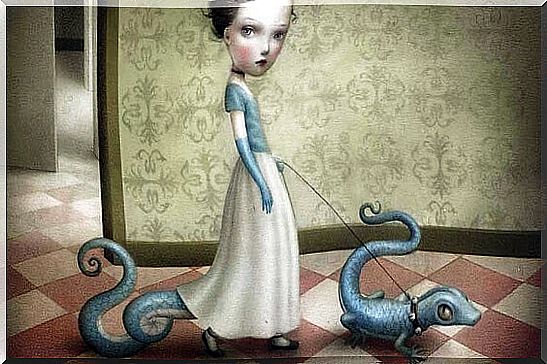8 Psychological Strategies For Dealing With Failure

Dealing with failure, or that emotional mess generated by actions that don’t have the expected result, is a daily task. Before any new project, whether economic, academic or personal, we are always asked the same question: what if I fail? There is no question that scares us more, because success is what matters most to us. However, have we thought about having a good strategy to know how to get up when we fall? Because it is often the beginning of success.
Being able to cope with setbacks, problems, frustration, or even stress can be the difference between succeeding or diving into a pit that is difficult to get out of. Therefore, we must not only work to achieve our goals, but also to know how to deal with failures.
What do we mean by success?
Success depends on each situation and on each person. In general, it is associated with the economic sphere and with work. A good salary is akin to having a good job. However, success is visible in many aspects of our life. Social desirability, the quality of the social relationships that we establish, the meeting of a person who completes us …
However, we will not always get everything we want. Knowing how to handle these situations will help us cope better and even become stronger.

What do we understand when facing?
Confrontation involves a series of thoughts, cognitive processes that direct our behavior towards problem solving. We are constantly changing the way we do things, depending on the resources we have or the demands that we or the environment make.
What are these strategies? At best we are thinking of specific processes and of great elaboration. However, any kind of response we give immediately to an event (whether good or bad) presupposes a method of confrontation. So, mourning the breakdown of a relationship already supposes a coping strategy. But it also includes going out to party with your friends, going to the gym, “disconnecting” or watching your favorite movies. All of them are different from each other, but equally valid for dealing with a feeling of discomfort.
General strategies
First, and very generally, there are two types of strategies:
- Problem solving strategies : These aim to focus the change on the problem. The latter was the cause of feelings of unease, which is why, by modifying it, we seek to transform the situation.
- Emotional regulation strategies : adaptation of the emotional response we give to the problem. In other words, it can be seen as a mechanism of self-control. We adapt the given solution to the stimulus.
Not all strategies resolve a conflict in a positive way. We may react in a certain way at any given time, but the emotional consequences that follow may not help to improve the situation. On the contrary, they can even make it worse. For example, if we respond to someone who has wronged us by shouting at them (emotional regulation), the situation remains the same. But we must consider that we are not settling the damage, but encysting a conflict that already existed.

Ways to deal with failure
Lazarus and Folkman were the pioneers in how we deal with failure and its repercussions. They rated and ranked the thoughts and actions that we develop to deal with the various issues that arise throughout our lives that can be stressful.
In total, eight strategies encompass both those that refer to problem solving and emotional regulation. In turn, each of these consists of a series of elements reflected in different forms of behavior or thought; forms that encompass the different ways people have to solve problems. This was collected in a questionnaire, the famous Ways of Coping .
Types of strategies for dealing with failure
- Confrontation : the person returns to reality to try to modify it. In a way, she seeks to overcome this failure, to try again. Sometimes this strategy involves great risk because the person has to invest more resources. Whether it is to obtain a new opportunity, whether it is to ensure success.
- Distancing : unlike the previous one. In this case, the subject tries to distance himself from what has happened. Especially in terms of attributions, trying to minimize their role in what happened.
- Self-control : The person’s efforts are focused on regulating emotions. It doesn’t mean doing nothing, but it is mental action.
- Social support : this strategy is based on seeking support in the environment around us. Sometimes outsourcing what we are feeling can help us target the problem better. Talking to other people, being listened to and advised, can help us see things from another point of view.
- Acceptance of responsibility : recognize the role that each played in the development of what happened. Accepting that we may have been at fault (locus of internal control), focuses solving the problem on ourselves.
- Escape or escape: fantasizing about possible solutions that we could implement, but none are achieved. Other strategies in this group may be more active, but they also respond to this avoidance pattern: eating, drinking, smoking, etc.
- Planning : Thinking and developing possible strategies for solving a problem as a method of coping. Planning can also refer to developing a plan of action to minimize losses associated with a failure.
- Positive reassessment: perceive the positive aspects that we can draw from it. It is traditionally known better as “seeing the bright side”.
In short, life is constant learning. Rarely does the direction we take take the desired path. This is when the feeling of failure or frustration can arise. It’s something normal, there is nothing pathological about it. Now there is an opportunity to grow and make a return on investment when we put our emotional resources into action to deal with this failure. It is then that these vital lessons emerge that we can only feel ourselves in our own flesh through our own experience. It makes us even wiser.










